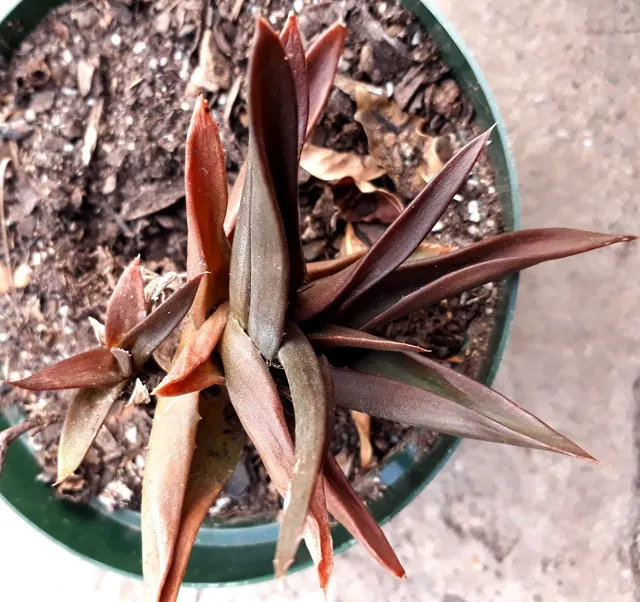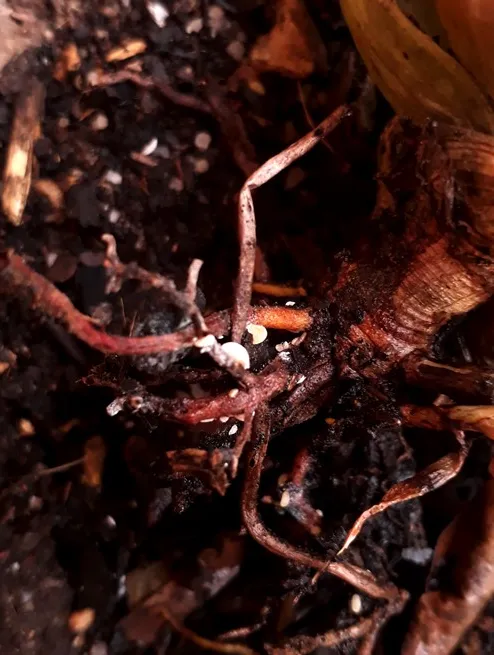I've been noticing that one of my small aloes wasn't doing very well and assumed that I had been negligent at watering it. Looking at it today, it is much worse so I decided to check if the roots were functional.

Sometimes, if you overwater succulents like aloes, their roots will rot. I could feel that the plant was very loose meaning that there was a problem with the roots so I pulled it out of the soil and out rushed a large number of ants so the problem became clear: not overwatering but an attack of the dreaded root mealie bugs!

Ants like to "farm" aphids because they secrete a sweet substance called honeydew as the suck on plant sap. The ants carry aphids around and tend to them in order to harvest the honeydew from the aphids. When they are doing this at root level, their presence is often harder to spot and the only time there is an indication that something is wrong is when the plant starts showing signs that it is struggling with water uptake from the soil and you see a lot of ant activity in the soil.
For now, I have sprayed the aphids with a contact insecticide to kill them and I will repot the aloe when they seem gone and then treat the soil with a systemic insecticide, Imidaclodaprid. This poison will be absorbed by the plant and then any insect which sucks on the plant will die because the sap has become poisonous. Care has to be taken when using systemic insecticide as you can't use it on flowering plants as it will kill bees and it's also not possible to use on fruits and vegetables. I don't like using insecticides but there are times when that is the only way to get plants healthy again